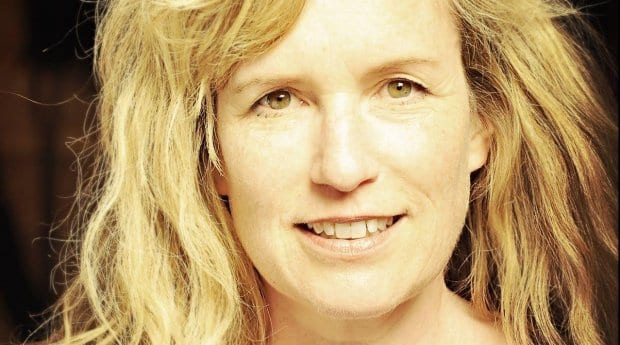Canadian theatre lost one of its greatest voices when playwright Linda Griffiths passed away in 2014 at the age of 60. First produced at Alberta Theatre Projects in Calgary in 2007, her play Age of Arousal returns to Factory Theatre in October 2015. Based on British writer George Gissing’s 19th century novel The Odd Women, the piece follows five women exploring their sexuality and gender identity. Presented as part of artistic director Nina Lee Aquino’s “Naked Season,” the piece is being produced as part of a series of Canadian classics staged with the barest of production values, aiming for a pure encounter between actor, audience and text.
Daily Xtra caught up with director Jennifer Brewin to chat about the production and what we can take from Griffiths’ script 10 years after its premiere.
Daily Xtra: You’re directing the play as part of this series of stripped-down Canadian classics. What are the particular challenges and advantages of working that way, and what do you think it reveals about this particular work?
Jennifer Brewin: On one level it’s incredibly freeing to stay in the territory of language and character, at the same time it’s very exciting to focus on and really rely on the acting and the text to tell the story. It’s also interesting because it makes you realize how much these elements of production are part of how we tell stories and asks us how we make something inspiring and meaningful with this through this way of staging. As a play, it’s really an ensemble piece in the truest sense, with six characters who each have their own stories that weave together into this overall exploration about the differences that make society healthy and vibrant and robust. The combination of the actors and Linda’s script together can create something that’s quite combustible and vigorous to watch, and working with a stripped down environment really serves that.
As someone who was entering the theatre world in the early ’80s, what effect did Linda’s work have on you?
There’s a bunch of us from that generation of artists who would probably say that Maggie and Pierre (Griffiths’ show where she played both Pierre Trudeau and his wife Margaret) was the reason we got into theatre. When I was a student, I remember people saying you can’t really go into professional theatre in this country, and then there was this whole scene in Toronto that was happening that she was part of. I think her presence on stage really bit at our heels to be part of it ourselves.
The play centres on a lesbian relationship between Mary and Rhoda; a lesbian couple who run a business school for young women in the 1880s. What was your approach to telling that particular story?
I’d actually like to qualify that the central idea of the play is on two women being together. There are five female characters who all have different identities: lesbian, bisexual, trans, asexual and heterosexual. So you’ve got these five different sexual beings who all have to come to terms with their identities and in doing so become more active citizens. The play’s really about citizenship through sexual identity and there’s a kind of optimism to it. If we could all just fuck and have sex with whomever we wanted to freely and openly that would lead to more authentic selves and a diverse society that’s capable of taking on big problems.
A lot has changed in the general public’s consciousness around queer and trans issues since the play premiered; marriage equality passing south of the border as well as the public transitions of Chaz Bono and Caitlyn Jenner. In terms of staging this play today, what do you feel it’s contributing to this dialogue?
What makes this play a classic in my mind is that it’s examining these questions of human rights, but it doesn’t say we’re done now. With every step forward there are all sorts of possibilities that what we’ve achieved isn’t going to last and that rights are not static. We never get to the point where we can say we’re done. We make these gains but we’re always going to have to fight for them.
Age of Arousal
Tuesday, Oct 20–Sunday, Nov 8, 2015
Factory Theatre, 125 Bathurst St, Toronto
factorytheatre.ca


 Why you can trust Xtra
Why you can trust Xtra


